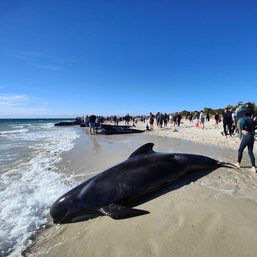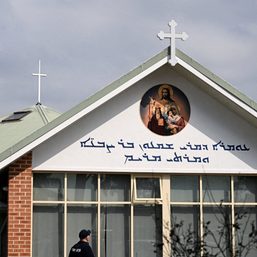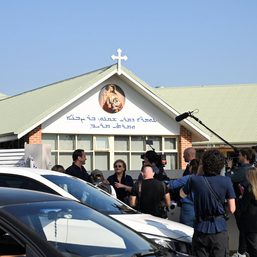SUMMARY
This is AI generated summarization, which may have errors. For context, always refer to the full article.

SYDNEY, Australia – Australia‘s government is aiming to use billions in budget goodies to offset cost-of-living pressures for disgruntled voters ahead of an election in May, but the consumer mood may already be too dark for the ploy to gain much traction.
Releasing his 2022-2023 Budget on Tuesday, March 29, Treasurer Josh Frydenberg surprised analysts by increasing a tax break for 10 million low and middle income earners that would hit bank accounts in July.
Also offered were one-off cash payments for pensioners, a temporary cut in fuel taxes, and the usual pre-election splurge on infrastructure projects.
“In this budget, we’re delivering temporary, targeted, and responsible cost-of-living relief for Australians now,” Frydenberg told reporters ahead of the budget’s release.
Some of this largesse has been funded by a tax windfall from surprisingly high prices for Australia’s commodity exports, combined with an unexpectedly strong labor market.
Yet the government will still run a swollen budget deficit of A$79.8 billion ($59.75 billion) in the year to end June, with another A$78.0 billion needing to be borrowed in 2022-2023.
The red ink reaches out to 2025-2026, with all the past talk of surpluses jettisoned by the center-right government.
Forecasts for economic growth were revised up, while unemployment was seen hitting 60-year lows of 3.75% later this year. Wage growth was also forecast to accelerate to a decade-high, though such projections are notoriously unreliable having overshot reality for years.
The Liberal National coalition of Prime Minister Scott Morrison is hoping all this good cheer will revive its standing in opinion polls, where it is running a distant second to the opposition Labor Party.
The bar is a high one, however, as ANZ Bank’s latest survey of consumers showed sentiment on personal finances was the bleakest since the depths of the pandemic in May 2020.
“Consumer confidence is very weak given the strength of employment, which we think is directly linked to concerns over cost-of-living pressures,” said ANZ’s head of Australian economics David Plank.
“It will be interesting to see whether the measures in the Federal Budget provide a boost to confidence.”
Keeping consumers happy is vital for the economy given they have been the engine of recovery. Data out on Tuesday showed retail sales jumped a solid 1.8% in February, while spending on bank cards has held up well in March.
An added complication is that rising inflation has the Reserve Bank of Australia (RBA) contemplating a hike in record-low interest rates later this year, the first since 2010.
Analysts warned the budget walked a fine line between providing too much near-term stimulus that could add to pressure for an earlier move by the RBA.
A lift in borrowing costs would certainly not be welcomed by Australian households whom, in aggregate, hold record amounts of mortgage debt. – Rappler.com
$1 = 1.3356 Australian dollars
Add a comment
How does this make you feel?





There are no comments yet. Add your comment to start the conversation.